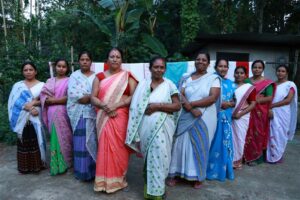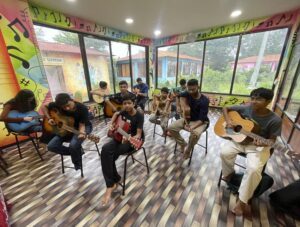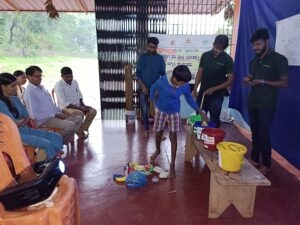Power disruptions were, until recently, a common problem in many of Mizoram’s remote health facilities, affecting everything from critical care to life-saving vaccines. Despite being connected to the electricity grid, many PHCs and sub-centres in Mizoram — especially in hilly and remote areas — regularly face power outages due to the region’s challenging geography. Landslides, cyclones, and heavy rainfall frequently damage power lines or block access to repairs, making even minor technical issues stretch into days-long blackouts.
Dr Lalnuntluangi Chawngthu, Assistant Director at the Directorate of Health Services, Government of Mizoram, recalls her own experience. A decade ago, while posted at Bunghmun PHC in Lunglei district, relentless monsoon rains caused landslides that completely cut off the area. The result: a week-long power outage.
“Due to the blackout, many vaccines were spoiled, delaying immunisations for nearly two weeks,” she says.
Solar Power Brings Lasting Change
In response to these recurring challenges, the Government of Mizoram partnered with the SELCO Foundation in 2023 to solarise health centres across the state. This collaboration aimed to improve last-mile healthcare delivery and ensure uninterrupted services, even in the face of natural disruptions.
The initiative is part of SELCO Foundation’s broader “Energy for Health” (E4H) programme, which uses renewable energy solutions to empower health systems in the Northeast. Supported by organisations such as the IKEA Foundation, Waverley Street Foundation, Ashraya Hastha Trust, and LIC Housing Finance, the programme has made impressive strides in a short time.
According to Dr Lalnuntluangi, nearly all of Mizoram’s 443 sub-centres have now been equipped with solar power.
Energy Resilience for Healthcare
At the heart of the E4H programme is Decentralised Renewable Energy (DRE) technology, including solar panels, batteries, charge controllers, and earthing cables, paired with robust operations and maintenance systems. This setup not only ensures a consistent energy supply but also strengthens the climate resilience of the healthcare infrastructure.
So far, more than 300 rural health centres in Mizoram have been solarised. As a result, these facilities can now deliver affordable and uninterrupted healthcare, even during the harshest monsoon or remotest blackout.
For healthcare workers like Malsawmdawngliani, solar power is more than just a source of electricity — it’s a lifeline. One that ensures no more lives are lost in the dark.
–inputs from The Better India





